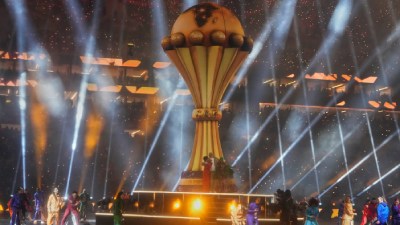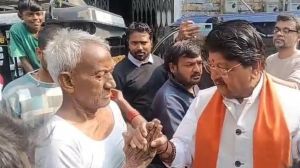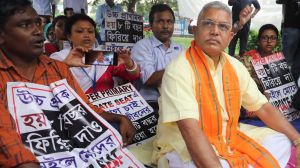Lyrical nirvana
Asrar Hasan Khan Majrooh' Sultanpuri is one of those few writers who haveimmortalised the cities of their birth. Not limiting himself to ...

Asrar Hasan Khan Majrooh8217; Sultanpuri is one of those few writers who haveimmortalised the cities of their birth. Not limiting himself to that honour,he also penned hundreds of film songs which have touched millions of hearts.So, when Majrooh saheb died last week in Mumbai, his death left a gapingvoid in the film industry which is anyway facing a dearth of meaningful andmemorable lyrics.
People will talk of his prowess in film song-writing and his amazing abilityto adapt to fast changing times and attitudes but few know that the thinghe had longed for all his life was not what he had achieved in the filmindustry. It was instead the proverbial pat on the back from those whomatter in the literary world 8212; critics. That never happened as criticsdismissed him as film writer.
The fact, however, remains that Majrooh was an eminent member of theProgressive Writers Movement founded by the likes of Prem Chand and PanditNehru in the 1930s. While others of their generation like Faiz Ahmed Faizchose to write serious literature under the leftist banner, Majrooh andSahir opted to embrace the glamour of the film world. While Sahir struck afine balance with literature and film, Majrooh slipped due to his tilttowards lyrics.
But still, as a loyal believer in the Progressive Movement, Majrooh neverspared a chance to show his ideological commitment to the land of Lenin andStalin. This couplet is often cited as proof of this commitment: Merinazar men bas rahi hai arze Moscow Majrooh8217;/Wo sarzameen sitare jise salaamkaren The land of Moscow inhabits my vision/the land which starssalute.
Needless to say, Majrooh had glorified Moscow to a great extent and it was acommon inference that the stars referred to here are those of the Americannational flag.
Yet, this open and unequivocal commitment to the left left him far behind inthe race for serious literary recognition and even the best of his poetryremained under the shadow of suspicion. All this apart, he went on to bagthe Iqbal Samman from the Madhya Pradesh government, Sant DnyaneshwarPuraskar from the Maharashtra government and an award from Maharashtra StateUrdu Academy, but he always regretted that all these were related to hisfilm writings and not for his literary genius. Conferment of the prestigiousDadasaheb Phalke Award proved him right too.
Majrooh had started his innings with writing songs along with ShakeelBadyuni, Sahir Ludhianvi and Shailendra. The first film he wrote songs forwas Shahjahan Jab dil hi toot gaya, ham jee ke kya karenge by Kundan LalSehgal instantly immortalised him. Majrooh never looked back ever again.His last films as a lyricist are the just released Kya Kehna and Ham toMohabbat Karega.
Majrooh mainly tied up with Nasir Husain among other producers and shared agood rapport with S.D. Burman and later with his son Rahul. In fact, Majroohwas one of those writers whose songs are remembered more than the titles ofthe films they featured in. Jalte hain jiske liye, Na tum hamen jano, naham tumhe janen, Uthaye ja unke sitam, Chura liya hai tumne jo dil ko andYadonki baraat nikli hai aaj dilke dware are but a few examples.
Majrooh was also one of those few writers who used films to popularise theghazal in society. His ghazal Ham hain mata-e koocha-o bazaar hitarha/lagti hai har nigah kharidar ki tarha still haunts and peoplestill slow down if they catch it playing on a roadside.
- 01
- 02
- 03
- 04
- 05































